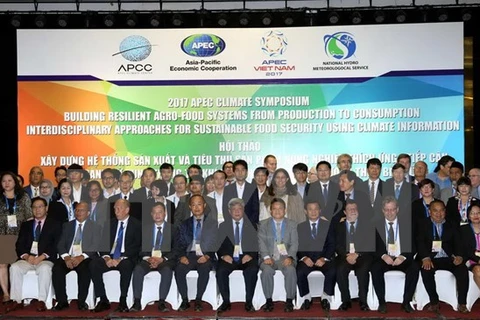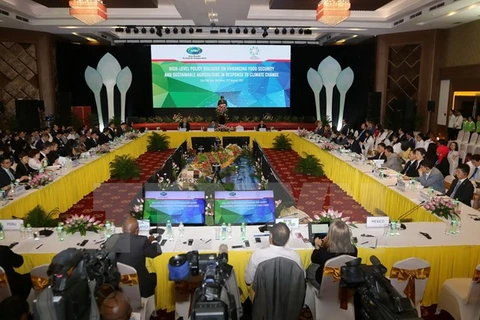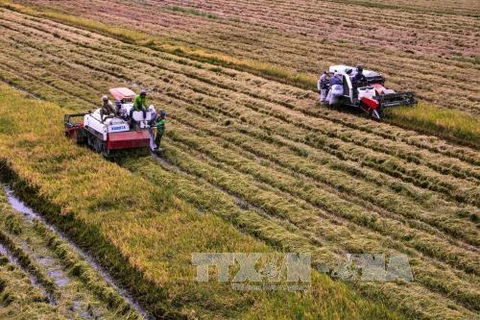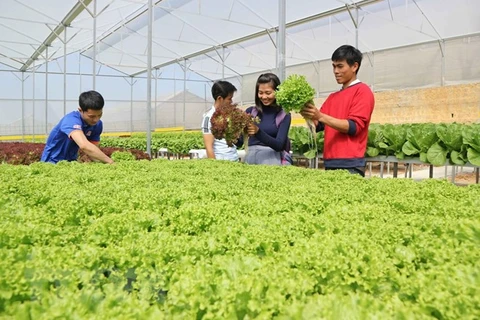Tien Giang (VNA) – The Ministry of Agriculture and Rural Development held a meeting in Tien Giang on August 17 to review the progress of the Vietnam Sustainable Agriculture Transformation (VnSAT) projects in the Mekong Delta over the last seven months, as well as discuss tasks for the remaining months of the year.
The VnSAT has been largely funded by the International Development Association (IDA) under the World Bank since 2015. It has a total investment of 301 million USD, of which, 238 million USD is financed by the IDA, while the remainder is sourced from the Vietnamese Government and private sector.
By 2020, it will be operational in five Central Highlands provinces and eight in the Mekong Delta region, aiming to foster the use of sustainable farming practices and enhance the value chains of coffee and rice production in these localities.
In the Mekong Delta provinces – namely Kien Giang, An Giang, Hau Giang, Tien Giang, Long An, Dong Thap, Can Tho, and Soc Trang – the project aims to support a large-scale programme of improving agronomic practices and management, supporting private sector investments in upgrading rice processing technology and facilities for high value and quality rice, and improving public service delivery.
The project is expected to reach about 140,000 rice-producing households, cultivating around 200,000ha of rice in the Mekong Delta and helping to increase those rice smallholders’ incomes by 30 percent.
According to the project’s management board, eight Mekong Delta provinces have been allocated with 390 billion VND (16.8 million USD) in funding for 2018. As of July, 50.8 billion VND, or 13 percent, of the funding had been disbursed. Over the first seven months, more than 115,400 farmers received training on the new rice cultivation technique ‘three reductions, three gains’ (3R3G), while over 53,000 have learned about the ‘one must, five reductions’ (1M5R) method.
3R3G refers to reductions in seed, chemicals, and water; and gains in productivity, quality, and economic efficiency. 1M5R means using registered seeds and reductions in seed, chemical fertiliser, pesticide, water use, and post-harvest loss.
Speaking at the meeting, Deputy Minister of Agriculture and Rural Development Le Quoc Doanh said the remaining workload that needs to be done by the eight Mekong Delta provinces this year is heavy and as such, by the year end, the provinces must pay more heed to resolving issues to fast-track the project’s progress and at the same time, make changes to the project plan according to the real situation. Monthly disbursement plans should be outlined to allow better monitoring, he added.
He also urged the eight provinces to continue training farmers on 3G3G and 1P5G, encouraging them to apply Good Agriculture Practices (VietGAP), and supporting cooperatives and credit institutions to improve capacity. –VNA
VNA
























